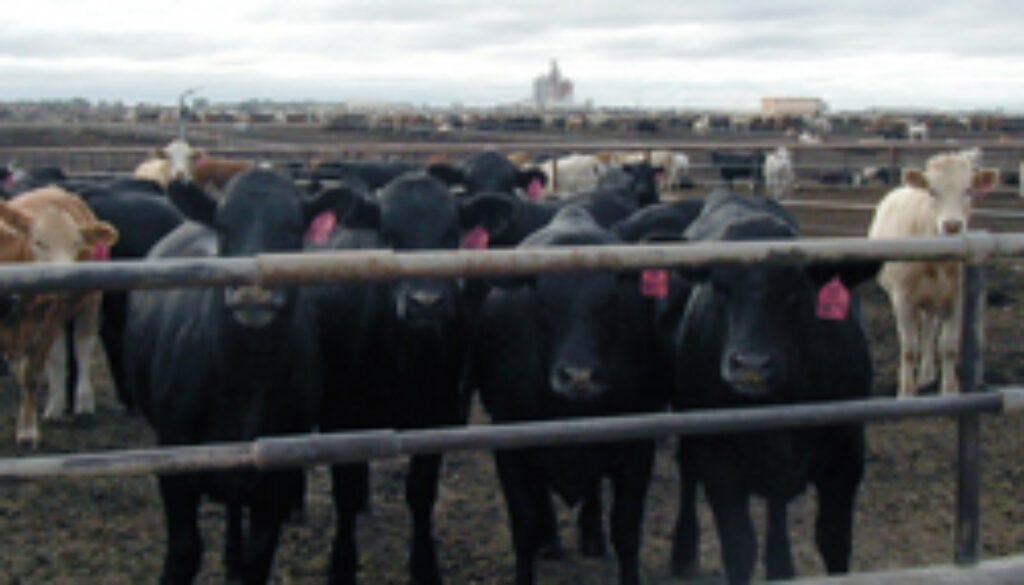Must-read recap: The New Lede's top stories
US EPA bans dry cleaning chemical; Iowa "in crisis" due to illegal manure discharges; advocates demand Red Dye 3 ban; glyphosate exposure and brain health; court rules USDA's GE crop rules break law.
US EPA bans toxic dry cleaning chemical
The US Environmental Protection Agency (EPA) on Monday issued a ban on a highly toxic chemical used in dry cleaning, glue and stain removers, a move the agency called a “major milestone for chemical safety after decades of inadequate protections and serious delays.”
The new rule will ban the manufacture and processing of trichloroethylene (TCE) for most products within one year, allowing a longer phaseout period for TCE use in aircrafts, medical devices and some other applications.
TCE is a known human carcinogen, and is also linked to birth defects and liver and kidney disease, as well as a surge in global Parkinson’s disease diagnoses.
“With no doubt that these chemicals are deadly, there is no doubt that this final rule will save lives – especially our children’s lives – around the country,” Senator Ed Markey (D-MA) said in a statement. (Read the rest of the story.)
Iowa is “in crisis” due to illegal manure discharges into waterways, new report says
Iowa regulators are failing to properly penalize Iowa factory farms for illegally contaminating state waterways with animal waste, according to an analysis released Monday by a public health advocacy group.
Between 2013 and 2023, the Iowa Department of Natural Resources (DNR) recorded 179 incidents in which livestock operators discharged manure in violation of the law, fouling creeks and rivers and killing off more than one million fish, according to Food & Water Watch, which based its report on a review of state discharge enforcement reports. The quantities of discharges ranged up to 1 million gallons, the group said.
The findings show a “state in crisis,” according to the group, which said its analysis found “no area of the state is safe from manure discharging into waterways.”
The group noted the violators have paid less than $750,000 in penalties for the illegal actions, despite the fact that such spills can carry harmful contaminants known to cause birth defects, cancers and other health problems in people. (Read the rest of the story.)
Spotlight on cancer-causing food additive as advocates demand FDA ban Red Dye 3
(This story was republished in Environmental Health News.)
In the waning days of the Biden administration, a long-fought battle over a cancer-causing food additive is again in the spotlight as consumer advocacy groups and lawmakers demand federal regulators ban Red Dye No. 3, a chemical used to give popular candies, foods and drinks their cherry-red colors.
The issue took center stage Dec. 5 at a US Senate hearing where lawmakers grilled Jim Jones, Food and Drug Administration (FDA) deputy commissioner for human foods, over the issue.
“Red 3 has been known to cause cancer in cosmetics but we still allow it to be put in our food. I don’t understand that,” Sen. Tommy Tuberville said in the hearing. “If we know something is deadly for anybody that ingests it how do we continue to just study that and not say hey, enough is enough?”
Industry studies linked Red Dye 3 to cancer in rodents more than 30 years ago, and public health groups have spent years lobbying food companies and regulators to get the chemical out of foods. (Read the rest of the story.)
Study indicates “persistent, damaging” effects of glyphosate herbicide exposure on brain health
Exposure to a widely used weed killing chemical could be having “persistent, damaging effects” on brain health, according to a new study.
The study, published Dec. 4 in the Journal of Neuroinflammation, found that laboratory mice exposed to glyphosate herbicide developed significant brain inflammation, a condition associated with neurodegenerative diseases such as Alzheimer’s. The researchers, many who are associated with a neurodegenerative disease research center at Arizona State University (ASU), said the symptoms continued even long after exposure ended.
“This work is yet another step forward in understanding the impact of this widely used herbicide on the brain,” lead ASU researcher Ramon Velazquez said. “But more research is needed to determine the impact that glyphosate has on the brain since most Americans are exposed to this herbicide on a daily basis.” Velazquez noted that the work is particularly important given the increasing incidence of cognitive decline in the aging population, particularly in rural communities where glyphosate is used in farming. (Read the rest of the story.)
Court rules USDA’s GE crop rules break law, must be reworked
US regulators made “significant” errors in adopting a new rule four years ago around the release of genetically modified crops, and must now strengthen oversight, a federal court ruled last week.
The US District Court for the Northern District of California sided with the National Family Farm Coalition and other plaintiffs in finding that a rule issued in 2020 by the US Department of Agriculture (USDA) related to regulation of genetically engineered (GE) crops ran afoul of other federal laws.
Close to 100 new GE plants have been exempted from USDA oversight since the 2020 rule took effect. The court vacated the rule, effective Dec. 2, and sent it back to USDA for “reconsideration consistent with this order.”
“This is a critical victory on behalf of farmers, the planet, and scientific integrity,” George Kimbrell, legal director for the plaintiff Center for Food Safety, and counsel in the case, said in a statement. “USDA tried to hand over its job to [the] pesticide industry and the Court held that capitulation contrary to both law and science.” (Read the rest of the story.)






TYVVVM New Lede for all you do to investigate, inform & hugely assist in so many ways the peoples & planet!!!